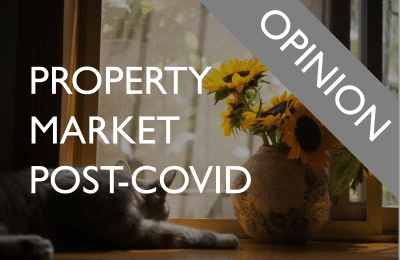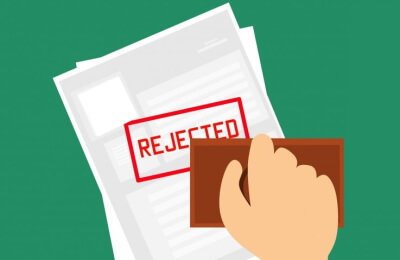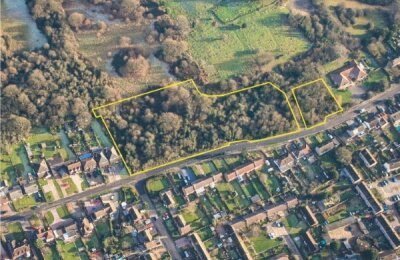
It’s the end of May and we have to date been under lockdown for about 9 weeks.
I’ve been piecing together my thoughts and what I think the impact might be for the housing market in the short, medium and long-term.
Of course, no-one knows what might happen in the future – there are a few ways this could go, but my thoughts are that
1) In the short term we’ll see some downward pressure on pricing and then a bounce back
2) In the medium term we will see a gradual change in behaviours of what people want and how they live
3) In the long term we will see a more radical shift due to increased regulations (mainly around climate change)
I have heard many people say that the pandemic will change people and behaviour as soon as lockdown is lifted. I’m not quite as sure as that. I think that previous big ‘shocks’ to systems have tended to accelerate changes that were already occurring slowly rather than causing discrete paradigm shifts.
Change is slow and incremental. We are like the proverbial frogs in a pan of boiling water. Put the hypothetical frog in a pan of cold water and it might stay there happily. Heat up the pan and it won’t notice the incremental change and will die by the time the water boils. In contrast, put a frog in a pan of boiling water and it will jump right out. I’m not actually sure if anyone has ever performed such an experiment (I hope not), but I think we can all appreciate the thought process.
It’s scientific consensus that the climate is warming. On the ground in the UK, these changes are generally quite slow. Summers are getting warmer and winters are getting wetter, but not by much compared to the previous year and our memories tend to be very short. It’s only when you look back 10, 20 or 30 years that you realise that we’ve undergone a major shift.
The internet is ubiquitous, but it was only 20 years ago that some people were forecasting it to be a ‘flash in the pan’. I don’t think anyone does these days. In the days of the dial-up modem, I signed up early to broadband and remember phoning suppliers and telling them that I was on their website looking at their stock and them being incredulous that I could look at their stock and be on the phone at the same time. I think most people would be pretty incredulous if you told them you didn’t have the internet or you worked off a dial-up modem. Ask yourself this question: do you remember what it took for you to switch from dial up modem to broadband?
As humans, we generally dislike rapid change. Change brings uncertainty and our survival instincts rely on planning for the known and the certain which is why, when we are in a winning state, we generally fear the unknown, but when we are in a losing state, we embrace risk and uncertainty – the ‘double or quits’ mentality (this was discovered by Daniel Kahneman and became his ‘loss aversion’ theory). Innovation is generally more evolution than something radically new. However, change does happen over time.
What does this mean for housing and the pandemic and the world in 2021?
Well, who knows, but my feeling is that there will be changes but they will be slower than we expect them to be.
First, I think that travelling will be permanently different. I don’t think anyone who has been at home for the past 9 weeks has missed the commute. I cycle everywhere. It’s a no-brainer for me: not only does it save me from going to the gym, it reduces my carbon footprint and weekly travel budget to zero. It also allows me to avoid the London Underground, the germ-infested, sweaty, unreliable privilege for which you have to pay £35 a week. So, my first prediction is that people will walk and cycle more.
There will be the inevitable rush of buying bikes most of which by 2021 will probably end up in a basement, garage or storage unit, but some people will stick with it. There is a theory of ‘critical mass’ – a bit like the point where you got broadband because everyone else did and it was easy / cheap to do so. They say that cycling is like that – the more bikes on the road, the fewer cars. The fewer cars, the more pleasant cycling becomes and more people stick with it and more money is spent on cycle ways until you get a virtuous circle where a whole city sees cycling as a key transport method.
Second, as bosses (like the guys at Twitter) realise that employees working from home may actually be more productive (or happier), then they won’t need to rent such big office workspaces. However, like the taking up of cycling, this may be a little overplayed, as I think that being at home has its disadvantages from a few perspectives. First, it means that there are no ‘official’ working hours.
One person I know complains that their boss is busy until 12 dealing with homeschooling and thus their day starts at 12 and ends at 9pm – not what they signed up for. Second, being out of the office means that we are endlessly on Zoom calls – a quick conversation in person turns into an hour on Zoom. However, I think it’s inevitable that we will reduce the time in the office. Even if everyone was at home for 1 day a week, that’s a 20% reduction in required desk spaces. My feeling is that employers will be more flexible about this – after all, if they can reduce their rental outgoings, then what’s not to like?
Third, as people have spent more time at home perhaps doing things that they don’t normally get a chance to do, they have come to think about working at something that they love. I’ve heard of people who have decided that they hate their ‘corporate’ job and want to do something more interesting with their lives. I fear that this is likely to be a short-lived impact as the salary of jobs we love unfortunately don’t always pay the rent.
Finally, I think that people are looking at their consumptive habits and wondering whether they need the latest ‘in-thing’ – whether that’s a gadget, a piece of fashion or going to an event just because they feel obligated to. I hate the endless networking evenings as much as the next person, but I fear that they are a necessity in our lives.
What does that mean for the housing market?
They say location, location, location and they’re right. However, when we’re looking for a place to live, we may be thinking about different places due to our newly formed different desires.
If you have to commute every day, then journey time is a big factor. That factor becomes less important if you’re only going in 2 or 3 days per week.
If you have to work from home, you are more likely to want a proper home study. Working on a laptop on your bed may be great for an hour or so, but it doesn’t work for 2 days a week. However, not many homes have a private study area – so generally people have to convert a shed in the garden into a home office or a spare bedroom that doubles as a study.
I think that larger and more flexible homes with good outside space will become much more desirable. For example, the ‘price per square foot’ of home varies from about £800-900 in zone 2 in London with say a commute of 30 mins to about £400 per square foot outside London with a journey of about 1 hour. That’s a lot more space you can buy for your money.
However, we should be careful of thinking that these impacts will be huge immediately and we should remind ourselves of why we won’t all be working from home forever and why human society won’t change drastically.We are social animals and crave human interaction. The point of the lockdown is that it is imposed on everyone. There is no FOMO (fear of missing out) – as no-one is going out and everything is cancelled. However, once others start doing things, meeting people and being back in the office, I think that the pull will be too strong to resist. And Zoom Drinks don’t really cut it.

Gus started in the property world over 20 years’ ago when he accidentally project managed his own loft conversion and then went on to do his own self-build home in NW London. He has been in property ever since. His believes self-build and custom build delivers better quality, better design, better value and is better for the environment. He sits on the national executive board at NaCSBA and chairs the custom build developer group. He is a member of the Expert Advisory Group and contributed to the Bacon Housing Review for Government. He is a frequent architectural judge and speaker and is a member of two design review panels.
New to Unboxed Homes?
We make self-build easy. We build customisable eco friendly new homes that you fit out yourself, or we fit out for you.
If you’ve ever wanted to build your own home but have been daunted by the idea or you want a project but don’t want the risk of buying a Victorian terrace that needs modernising, then sign up for our newsletter or our custom build register and we will send you emails with opportunities and land for sale that has been vetted as a good opportunity by our MD Gus Zogolovitch
Be the first to know about our newest projects
Find a plot for your custom build project



